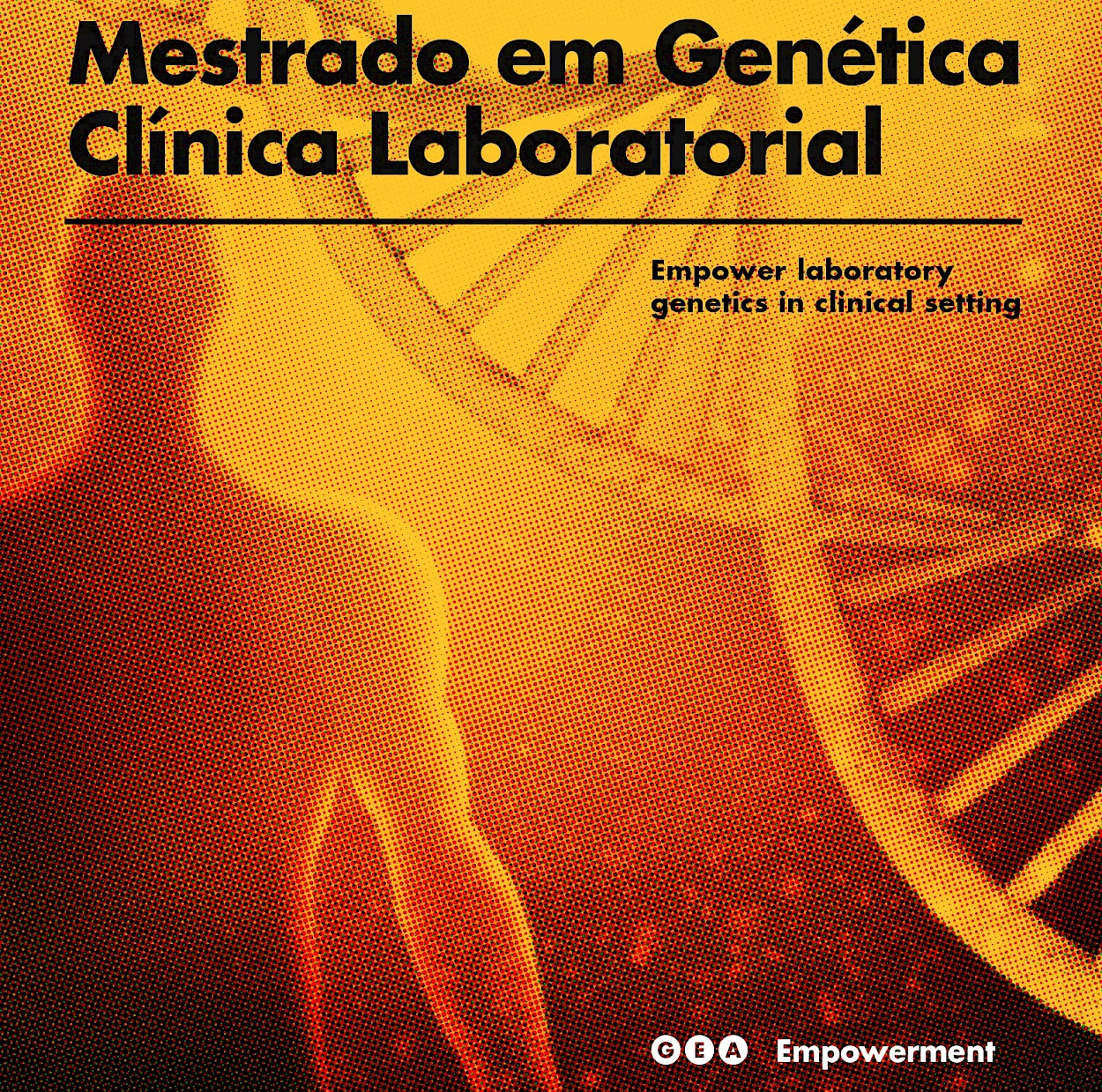| Course Coordinator(s) |
Professor Isabel Maria Marques Carreira PhD. Email: icarreira@fmed.uc.pt Professor Doutora Maria Joana Lima Barbosa Melo PhD. Email: uc16360@uc.pt |
| Duration | 4 Semestres |
| Nº Vagas | 20 |
| ECTS | 120 |
| School fees: | 1.500,00€ (7.000,00€ international student) |
| Contacts |
Gestão Académica | Estudos Pós-Graduados da FMUC Telefone: + 351 239 857 720 e-mail: posgraduado@fmed.uc.pt Gabinete de Estudos Avançados Telefone: +351 239 857 729 e-mail: gea@fmed.uc.pt |
| More information |
The work developed by a student during one academic year, according to the indicative plan of the course and on a full time basis, totals 60 ECTS.
General Objectives of the Course
With the implementation of this course, the student at the end of the course should be able to:
- Know the history and evolution of human genetics and its relationship with the area of Clinic Laboratory Genetics (CLG).
- Analyse the basic biological mechanisms associated with human genetics, namely the molecular bases of Mendelian Inheritance, non-Mendelian inheritance and complex disorders.
- Understand the basic concepts of clinic genetics.
- Correlate the genotype with phenotype, stressing its importance in the clinic.
- Identify, analyse and select different Technologies for CLG, particularly in Cytogenetics, Molecular Cytogenetics, Molecular Genetics and Genomics, and Biochemistry Genetics.
- Integrate and interpret the results of different technologies within the CLG.
- Understand and analyse the role of CLG in the context of prenatal diagnosis and reproduction/infertility.
- Describe the molecular mechanisms involved in carcinogenesis in both sporadic and hereditary cancer, being able to mention the role of oncogenetics, epigenetics, tumor cytogenetics and different technologies, including the “omics” approach.
- Understand the basic concepts of population genetics and its role in the etiology of diseases of specific population groups and integrating this knowledge into primary prevention and public health.
- Understand the basic concepts of Forensic Genetics and its specific characteristics in the context of laboratory Genetics.
- Demonstrate the central role of Bioinformatics concepts in the context of CLG, namely analysing tools applied to the genotype/phenotype relationship.
- To know the principles of good laboratory practices and quality control.
- To know the standards of good practice of genetic counseling, integrating them in the context of the CLG.
- Understand the specifics and regulation in the context of biobanks.
- To know the Portuguese legislation and regulation within clinical genetics.
- Integrate laboratory management in the context of diagnosis in CLG.
- Emphasise the need for teamwork and skills in the field of communication and ethics.
Admission Requirements
- Bachelors or masters in Medicine, Dental Medicine, Pharmaceutical Sciences, Biochemistry, Biology, Biomedical Engineering, Molecular Genetics, Biomedical Pharmacy, Medicinal Chemistry, Health Sciences or other have related degrees considered relevant by the Scientific Council of FMUC;
- Holders of foreign higher academic degree, following the 1st cycle of studies organised according to the principles of the Bologna Process, under the same national conditions.
- Holders of a foreign higher academic degree that is recognized as meeting the objectives of the graduate degree by the Scientific Council of FMUC;
d) Holders of an academic, scientific or professional curriculum that is recognised as attesting the ability to carry out this cycle of studies by the Scientific Council of FMUC.
- Candidates should check the admission requirements available in this site, in addition to the information provided here.
Professional Goals
An advanced training in Clinical Laboratory Genetics will allow the training of
specialized human resources for diagnostic, research and development (R & D) areas in public service sectors (hospitals, state and university laboratories) and private sectors and national or international industry, as well as agencies and governmental and regulatory organizations, namely: Clinical Genetics Laboratories; Genetics laboratories Forensic science; Public Health Laboratories; Pharmaceutical, Cosmetic and Biotechnology industries; Industries and enterprises of molecular diagnostic development; Consultancy in government and regulatory organizations; Human Resources for Teaching and Research in Human Genetics Scientific Field; Specialized Human Resources for Laboratory quality control and certification area in the field of clinical genetics.
Applications 2024/2025
1ª fase –Does not open applications
2ª fase – 3 de junho a 15 de julho de 2024
3ª fase – Does not open applications
On-line applications https://inforestudante.uc.pt/nonio/security/candidaturas.do
https://www.uc.pt/en/applications/
Teaching team
Ana Bela Sarmento, Ana Cristina Gonçalves, Bárbara Oliveiros Paiva, Duarte Nuno Vieira, Eunice Matoso, Francisco Caramelo, Francisco Corte Real Gonçalves, Henrique Girão, Henriqueta Coimbra Silva, Ilda Patrícia Ribeiro, Isabel Carreira, Joaquim Murta, Jorge Saraiva, José Nascimento Costa, Lino Gonçalves, Luísa Diogo Matos, Manuel Santos Rosa, Manuel Antunes, Margarida Silvestre, Maria Isabel Santana, Maria Joana Barbosa de Melo, Maria do Rosário Almeida, Miguel Castelo Branco, Ricardo Vieira, Rufino Silva, Sandra Morais Cardoso, Sérgio Sousa, Sofia Maia, Vitor Sousa
Local
Subunidade 3 do Pólo III, Faculdade de Medicina da Universidade de Coimbra
Quinta feira à tarde e Sexta feira todo o dia

